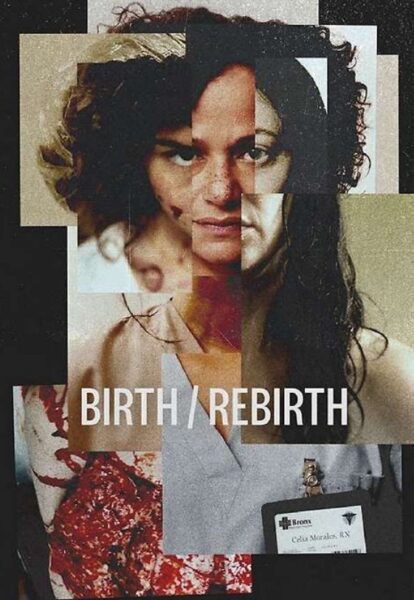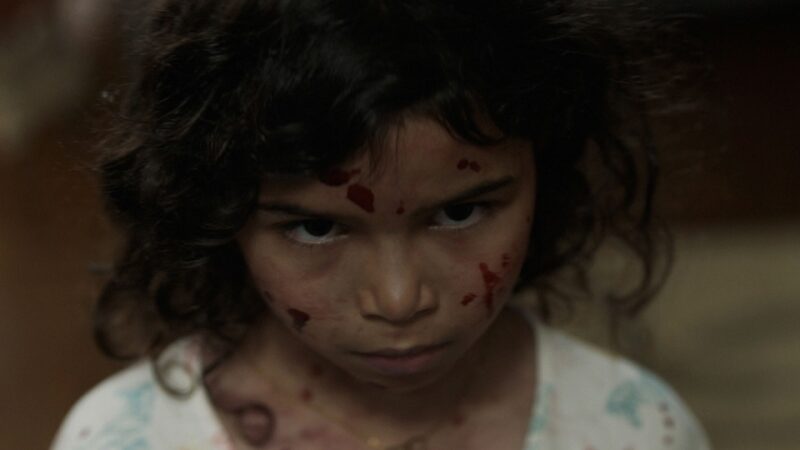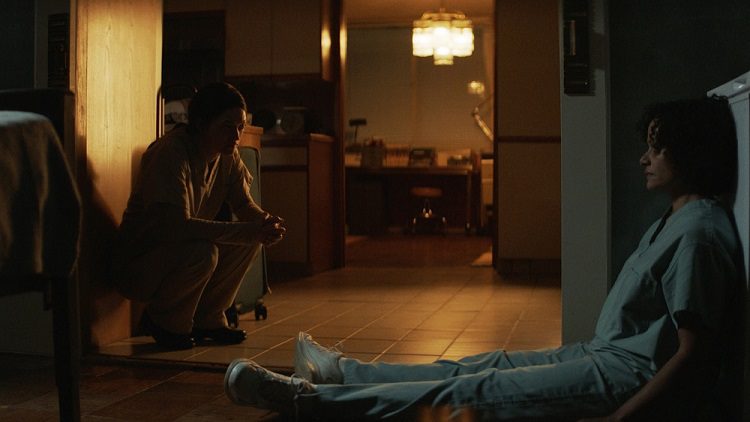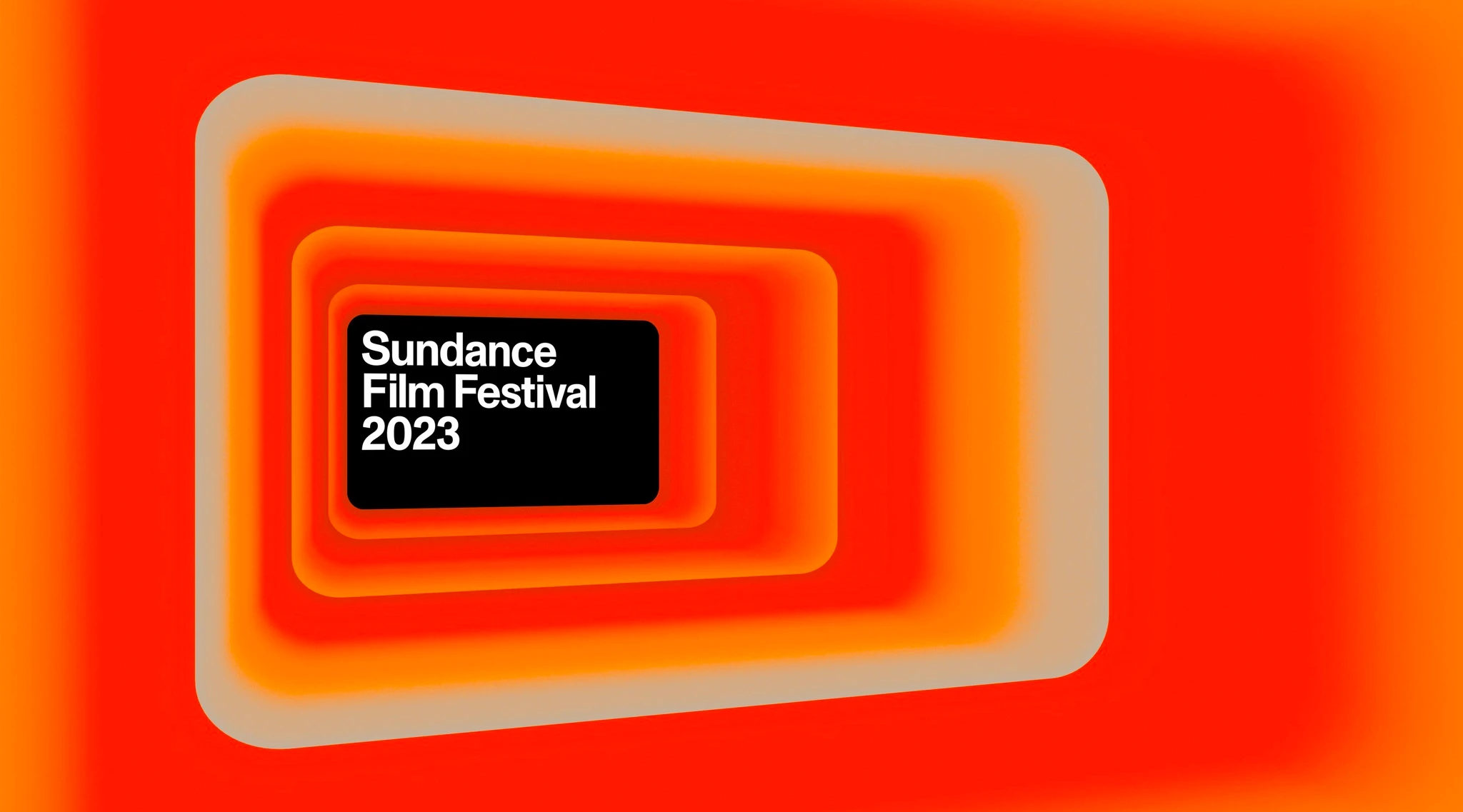You ever have a film concept that you haven’t thought of, but when presented, you didn’t know you always needed it? Laura Moss’s new film, Birth/Rebirth was that for me. A very modern female-centric reinterpretation of Re-Animator? I’m on board for the ride.
Here are our thoughts on Shudder‘s latest exclusive…

More Re-Animator Than Frankenstein
If I had to describe Birth/Rebirth in one word, it would be “clinical.” Sometimes it is for the better, sometimes for the worse. The clinical eye of the camera avoids any specifically gendered gaze; when nudity is shown, it’s very matter-of-fact (again: clinical). Womanhood is shown bluntly, discussing the matter of prenatal existence with the simple comment: “Dignity and motherhood don’t always line up.” There is no sanitized Disney propaganda here; the path to parenthood is messy, in more ways than one.
The main leads and the glue of the presentation holding everything together are Celi (Judy Reyes, Scrubs), a nurse whose 6-year-old daughter dies while she is on shift with a broken phone, and Rose (Marin Ireland, The Empty Man), a pathologist determined to defeat death. Several other critics compare this film to Frankenstein, and while I can see why, I would like to re-state that this is far more comparable to Stuart Gordon’s Re-Animator in more ways than one.
While Victor Frankenstein does cheat death, certainly, that is not his goal. He wishes to create life and supersede any higher power. Meanwhile, Re-Animator‘s lead is solely focused on defeating death at any cost. Ireland’s Rose is far more West than Frank. Rose doesn’t seem to want to do it for fame, just for her own lifelong obsession over bioscience; something we learn in a nasty monologue in the second act, delivered wonderfully stone-cold by Ireland.

Breaking It Down
Speaking of Ireland, it’s wonderful to see a female Mad Scientist on screen. It’s long overdue. The last time I can think of seeing one in modern pop culture is debatably Poison Ivy/Dr. Pamela Isley, from Batman comics. Like West, Rose is completely detached from anything not conducive to her work and is extremely clinical in everything she does. This is emphasized early on by a scene where she’s collecting sperm at a local bar by masturbating a random man with a completely nonplussed, medical reaction like she’s giving a physical.
When Celi comes looking for her daughter’s body after it disappears from the morgue, she finds Rose has the body and is turning it into her new subject. Stunned and desperate to keep from losing her daughter again, she forms a parasitic sort of relationship with Rose, aiding her work. Like Dan and Herbert in Re-Animator, it’s filled with dark codependence in a mutual goal, for differing personal reasons. The film plays this up with a minor subplot of the revived Leah having confusion about who her mother is due to their “co-parenting” observations and medical procedures, but unfortunately it’s a dangling one left unresolved.
For those who have had chronic health issues or extensive medical procedures, there will be a few scenes that are tense and gross to watch, for sure. One, in particular, involving bone marrow got to me. The film makes sure to do its best to ensure these experiments and scenes are direct, clinical, and medical, very much focusing on a doctoral gaze, so to speak, but sometimes an image is just wired to get a tense reaction on a primal level.

The Verdict
For everything I’ve talked about, one would probably assume I loved Birth/Rebirth. Unfortunately, I can’t go that far. I liked it, but a few substantial flaws hold me back from that. The first is minor and more related to pop culture and memetics rather than a directorial issue, much like 2018’s Brightburn using Billie Eilish’s “Bad Guy” in the credits months after the viral craze of its overuse had worn it out. In this case, there is one scene that uses a specific sound effect that may be recognizable to horror and anime Tiktok users, often used for horrific image sequences or Chainsaw Man clips relating to the Makima character. It’s completely not the director or editor’s fault that memetics has made that sound synonymous with something else.
The other concern of mine was the rather incomplete nature of the story itself. While the personas of the lead women are explored a little, the film doesn’t cover them enough to classify them as a character study, and the actual plot is fairly meandering and ultimately leads to an unsatisfying non-conclusion. Overall, you can come for some clinical yet nasty bio-horror, and two solid performances, but be warned, it may not play out how you hope…

Birth/Rebirth was covered as a part of our Sundance Film Festival 2023 Press Coverage, and we would like to thank them for their support of us and independent film.
 PopHorror Let's Get Scared
PopHorror Let's Get Scared




